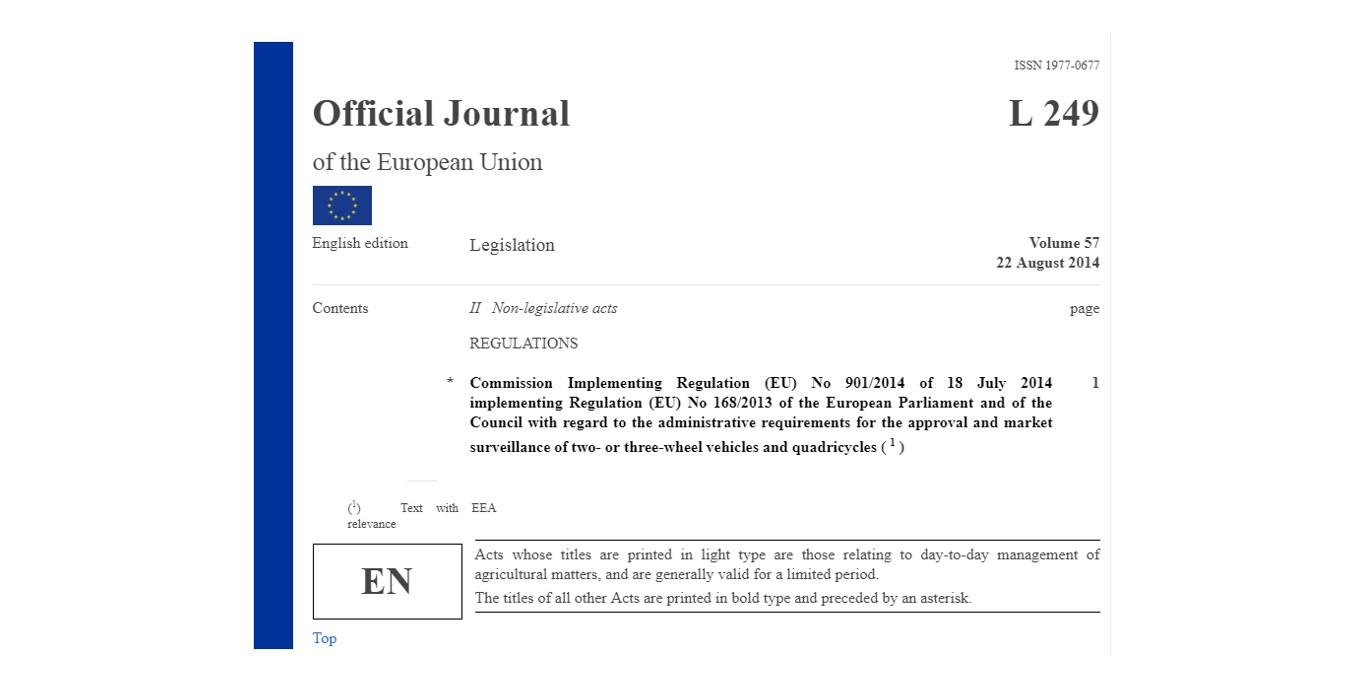
The European Commission published today in the Official Journal of the EU the implementing regulation on administrative requirements for the approval and market surveillance of two- or three-wheel vehicles and quadricycles (Commission implementing regulation 901/2014).
The European Commission published today in the Official Journal of the EU the implementing regulation on administrative requirements for the approval and market surveillance of two- or three-wheel vehicles and quadricycles (Commission implementing regulation 901/2014).
The text is the last piece of legislation that implements the Type-approval regulation (Regulation EU 168/2013).
The Commission implementing regulation 901/2014 outlines administrative requirements for the approval of new L-category vehicles. Its publication follows a positive vote by the members of the Technical committee on motor vehicles (TCMV) which took place on 1 July. the new implementing regulation will enter into force on the twentieth day following that of its publication in the Official Journal and will apply from 1 January 2016.
About the type-approval package
Regulation EU 168/2013 and its implementing and delegated acts provide for new environmental and emissions requirements, advanced braking systems, anti-tampering measures and access to repair and maintenance information, among others.
The emissions requirements will be introduced in two steps: Euro 4 and Euro 5. Euro 4 will apply to L3e (motorcycles), L4e (motorcycles with sidecars), L5e (tricycles), L7e (heavy quadrcycles) as for 1 January 2016; and to L1e, L2e and L6e as of 1 January 2017. Existing vehicles will be alowed an extra year to comply with these new standards.
Under Regulation 168/2013 new type-approved vehicles will be required to comply with Euro 5 standards as of 2020. This obligation, however, will be subject to a “comprehensive environmental study” by the European Commission, the conclusions of which are expected to be published by 2016.



